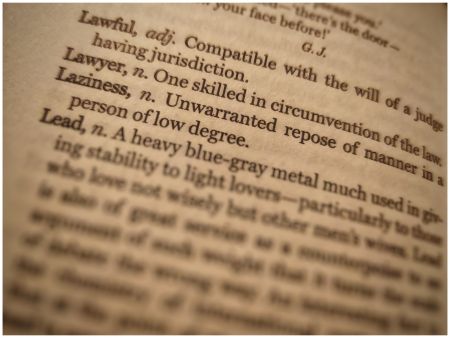Bright-line test: Difference between revisions
Amwelladmin (talk | contribs) No edit summary |
Amwelladmin (talk | contribs) No edit summary |
||
| Line 1: | Line 1: | ||
{{ | {{def|Bright line test|/brʌɪt lʌɪn tɛst/|n|}} | ||
1. (''American''). An unwelcome degree of [[certainty]]. Always uttered in the negative, and with insincere remorse — e.g., “sadly, [[there’s no bright line test]]” — a [[bright line test]] is a [[Metaphysics|metaphysical]] concept that does not exist as a matter of {{tag|New York law}} (or for that matter Federal law or any other state’s law). It is a [[US attorney]]’s means of evading any responsibility for anything she says or does, instantly rendering any [[legal opinion]] she may have written to you worthless. | |||
===Usage=== | ===Usage=== | ||
Revision as of 16:09, 29 November 2020
|
Bright line test /brʌɪt lʌɪn tɛst/ (n.)
1. (American). An unwelcome degree of certainty. Always uttered in the negative, and with insincere remorse — e.g., “sadly, there’s no bright line test” — a bright line test is a metaphysical concept that does not exist as a matter of New York law (or for that matter Federal law or any other state’s law). It is a US attorney’s means of evading any responsibility for anything she says or does, instantly rendering any legal opinion she may have written to you worthless.
Usage
“There is no bright line test in the rules, and consequently there is always a potential risk that regulators might be inclined to take the view that your good faith practice on which your firm designed its SOX implementation might not be recharacterized as a safe harbor to Title III of Regulation G of Rule 14-a7 of the ’40 Act ...” zzzzz zzzz zzzz HEY! WAKE UP!
